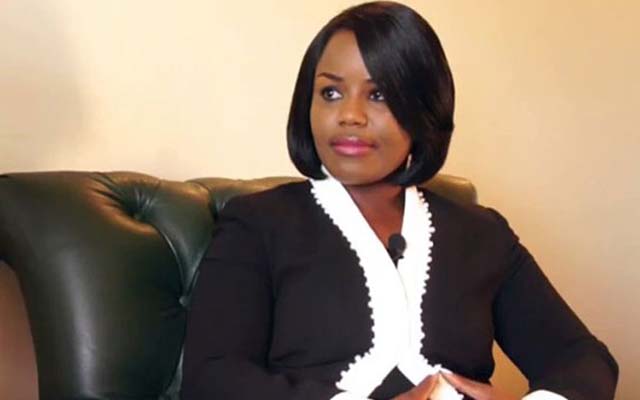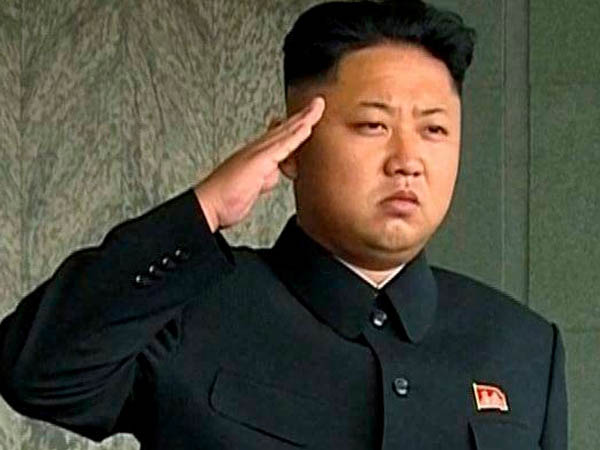Where are women in political declarations and intentions?

Ruth Butaumocho Gender Editor
A few weeks ago, Advocate Fadzai Mahere declared her intention to enter mainstream politics and contest in the 2018 Parliamentary elections. Her decision was met by surprises and in some instances furore from seasoned politicians who felt her decision was ill advised. Some said she was too young to be jostling for political position while others felt that her entranceinto mainstream politics as an independent candidate would “split the vote”.
Some even accused her of being a Zanu-PF project, saying there was no way she could separate her political ideology from that of her family, who are said to be staunch supporters of the ruling Zanu-PF party.
Whatever the sentiments that were thrown in the public domain, they have not swayed her from her decision to contest in Mount Pleasant in 2018, challenging the current Member of Parliament for the area, Cde Jaison Passade.
She is not alone in her quest to seek political office through elections. Other newcomers in politics have expressed interest, while others have declared their intentions to challenge incumbent MPs in various constituencies.
With less than a year to go before Zimbabwe goes to elections to vote for the President and Members of Parliament, several new political aspirants have expressed their intentions to run for public political office.
Businessman Energy Mutodi and former ZBC news anchor Oscar Pambuka, to mention a few, are among aspiring politicians, although there could be several others, who are working silently and want to spring out at the 11th hour and surprise their rivals.
One year out from the elections, the timing is indeed right for those who have political ambitions to make their intentions known, prepare for campaigns, while gauging their popularity in their preferred constituencies.
Aspiring female politicians have been conspicuous by their absence and are yet to make their intentions known to the electorate they would want to vote for them.
If they are there, then the female populace could be leaving it a little too late to come out and declare their interests. This is despite their bold declaration some few months ago that they want 50-50 representation in politics come 2018.
Women across parties are demanding that of the 210 seats in Parliament, 105 should be set aside for them, a situation which will only be possible once the august house has amended the Electoral Act, and pave way for delimitation.
What they are agitating for might be a story for another day, but what is urgent is their participation in the pending plebiscite, with or without an amendment to the Electoral Act.
The elections call for clear thought process from aspiring female politicians, who want to join the race and present themselves for election.
A clear thought process, visibility on the political radar and a saleable manifesto based on deliverables, are what the voter often looks at.
Efforts by women to create the new normal in politics by increasing their representation in leadership will not be achieved overnight neither can they be accomplished in isolation.
The game of politics requires astute judgment and action-oriented decisions to give the female populace a competitive edge against their male colleagues.
By now political parties should have long identified candidates they want to represent them at party level and support them over a period of time with mentorship and resources.
Such in-house processes at party level will help women interested in running to make realistic judgments about their electoral prospects and campaigning strategies before narrowing support to candidates who have already found favour with the electorate.
Unfortunately, political parties stand accused of sabotaging women’s ascendancy in politics.
There are concerns that major political parties like Zanu-PF and all MDC splinter parties have not given women the necessary political support to enable them to find footing in the current political minefield.
In 2013, both the ruling Zanu-PF and MDC-T fielded less female candidates in the election, further reducing the number of women representatives in Parliament.
Lack of resources for campaigning, political violence and abuse further contributed to the reduction of female representation in the august House. It took the implementation of the quota system as enshrined in the Constitution to achieve a 34 percentage female representation in Parliament.
Next year’s elections may not be different from those of 2013, what with factional politics and dictatorial tendencies by party leaders currently rocking structures of major political parties.
Such developments have relegated gender mainstreaming issues to the periphery.
The recent pronouncements by MDC-T’s Morgan Tsvangirai to ban primary elections has diminished women’s hopes, particularly those intending to contest on opposition ticket.
The narrowing of the political space by Tsvangirai through his decision to ban primary elections means he will constitute himself into the party’s elections directorate, completely shutting out the majority of aspiring female candidates.
With such a bad record of undermining women following his decision to overshadow Thokozani Khupe’s relevance in the party’s presidium, the feminine ship within MDC-T is already caught up in a serious wave, threatening to sink it.
Even Joice Mujuru’s National’s People Party has not been clear in its policy on the inclusion and promotion of women in party structures.
Women’s predicament in politics is also set to worsen should the ruling Zanu-PF party fail to provide a conducive environment to promote the political inclusion of women in its structures.
With the party working around the clock to deal with factionalism, it would not be surprising that gender mainstreaming has for now been relegated to the periphery.
Jostling for positions within political parties could have informed Advocate Mahere’s decision to stand as an independent.
Women still need to stand up and be counted for what they believe in.
They will have to continue pushing for recognition on the existing political space to increase their representation in public office.
The fact that political parties value women’s contribution in politics because of their numerical significance should give them a competitive edge and muscle to demand and push for recognition.
If they can be mobilised in large numbers to vote, why should they remain visibly absent in decision-making structures, yet they possess so much power to elect people into office?
Of course, the numerical significance that women are agitating for in the 2018 elections may not be achieved next year, but they should start to concretise the vision by strengthening their networks.
Women leaders need to restore their grip on family values, and socialise the young girls into leadership.
Family is the first and most influential agent of socialisation. The gender roles that a child learns set the tone for the child later on in life and make it easier to adapt when the opportunity arises.
Through socialisation women will eventually realise their worth and demand as much stake in political parties or even outside and be incorporated into existing political systems.







Comments